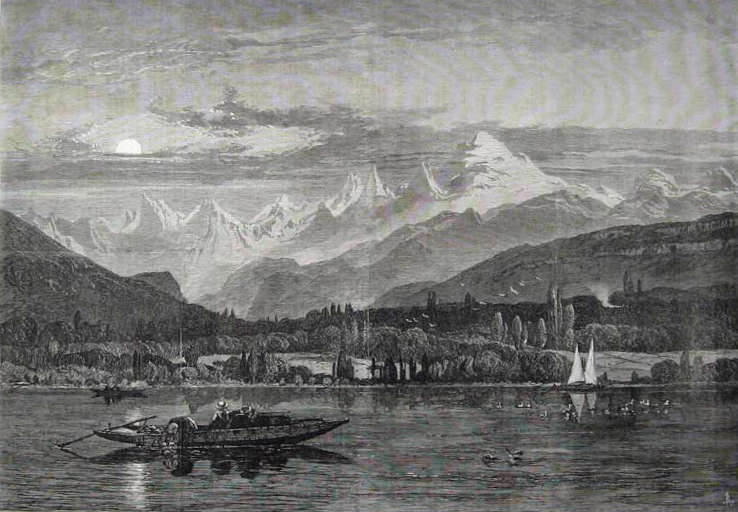‘Abdu’l-Bahá’s Example of Forgiveness
An excerpt from Vignettes from the Life of ‘Abdu’l-Bahá p 51-52:
In 1911 the Master spent a few quiet days in the French Alps, presumably to rest, before continuing to London. Here took place a remarkable encounter which illustrates the universality of His love, even towards those whose hearts ran hostile to Him and to His Father’s Cause. Juliet Thompson tells us the following about this occasion which she herself witnessed: “Monstrously sinned against, too great was He to claim the right to forgive. In His almost off-hand brushing aside of a cruelty, in the ineffable sweetness with which He ignored it, it was as though He said: Forgiveness belongs only to God.
‘An example of this was His memorable meeting with the royal prince, Zillah Sultan, brother of the Shah of Persia, Muhammad Ali Shah. Not alone Abdu’l-Baha, but a great number of His followers, band after band of Baha’i martyrs, had suffered worse than death at the hands of these two princes. When the downfall of the Shah, with that of the Sultan of Turkey, set Abdu’l-Baha at liberty, Abdu’l-Baha, beginning His journey through Europe, went first to Thonon-les-Bains, on the Lake of Geneva. The exiled Shah was then somewhere in Europe; Zillah-Sultan, also in exile with his two sons, had fled to Geneva. Thus Abdu’l-Baha, the exonerated and free, and Zillah Sultan, the fugitive, were almost within a stone’s throw of each other.
‘In the suite of Abdu’l-Baha was a distinguished European who had visited Persia and there met Zillah Sultan. One day when the European was standing on the balustraded terrace of the hotel in Thonon and Abdu’l-Baha was pacing to and fro at a little distance, Zillah Sultan approached the terrace. Abdu’l-Baha was wearing, as always, the turban, the long white belted robe and long aba of Persia. His hair, according to the ancient custom of the Persian nobility, flowed to His shoulders. Zillah Sultan, after greeting the European, immediately asked:
‘“Who is that Persian nobleman?”’
“Abdu’l-Baha.”
‘“Take me to Him.”
‘In describing the scene later, the European said: “If you could have heard the wretch mumbling his miserable excuses!” But Abdu’l-Baha took the prince in His arms. ”All that is of the past,” He answered, “Never think of it again. Send your two sons to see me. I want to meet your sons.”
‘They came, one at a time. Each spent a day with the Master. The first, though an immature boy, nevertheless showed Him great deference. The second, older and more sensitive, left the room of Abdu’l-Baha, where he had been received alone, weeping uncontrollably. “If only I could be born again,” he said, “into any other family than mine.”
‘For not only had many Baha’is been martyred during his uncle’s reign (upwards of a hundred by his father’s instigation), and the life of Abdu’l-Baha threatened again and again, but his grandfather, Nasiri’d-Din Shah, had ordered the execution of the Bab, as well as the torture and death of thousands of Babis.
‘The young prince was “born again” – a Baha’i.’



I am moved to tears by ‘Abdu’l-Baha’s boundless capacity to forgive and encourage. And the transformative power that emanated from Him that rejuvenated those who, with pure hearts, came into His blessed presence. Thanks for posting this and taking the time to find a nice Victorian painting depicting Lake Geneva and the French Alps.
How beautiful and complete His flow with the Reality of the Present. Conditions changed – He made way for others to change from that point on. Truly the “Master”.
(Sigh)
o the pain of the heart released….